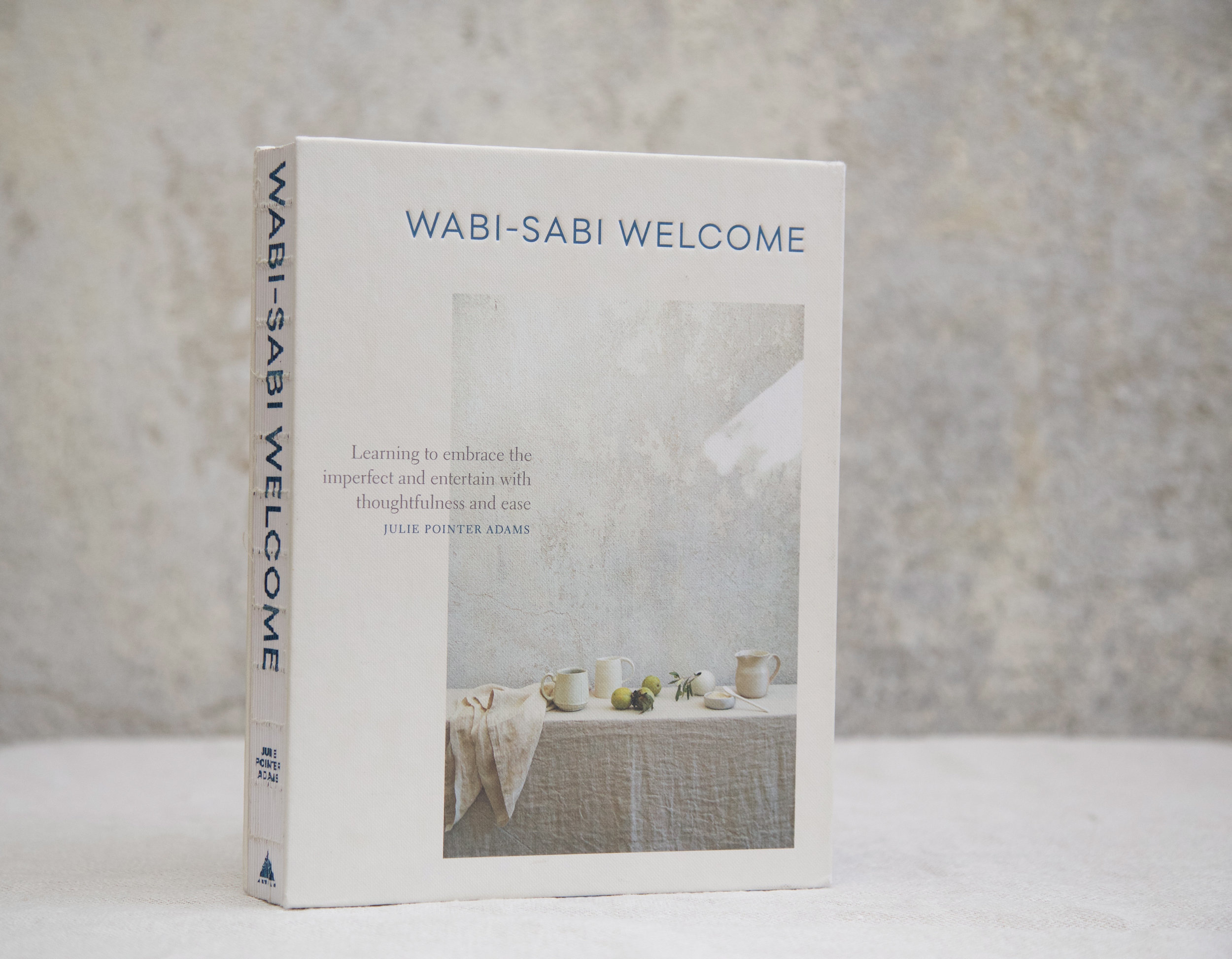
“Wine rings on a wooden table,” Julie Pointer Adams says, describing the concept of wabi-sabi, of the beautiful imperfections that inspired her recent book, Wabi-Sabi Welcome.
My inner perfectionist immediately cringes at the thought of tarnished furniture finish. It is no secret that many of us like to keep our surfaces pristine, especially when it comes to inviting others into our homes. We spend hours preparing, cleaning, hoping to efface the traces of everyday life that have naturally left their unwelcome marks.
But Adams understands the mind of the perfectionist perhaps better than most, which is why she felt compelled to write Wabi-Sabi Welcome, a radical reimagining of the way we conceive of “perfection” when it comes to hosting events, decorating our homes, and designing our lifestyles. For Adams, it is precisely our fear of those wine rings, of imperfections, that holds us back.
She continues: “Wabi-sabi is not just an aesthetic. It is not just about that imperfect, used quality. It is also more generally a way of life and thinking about things. It’s about finding beauty everywhere you go, not just how we do in the Western world.”
In her book, Adams invites us on a journey to experience the many facets of beauty in hosting and in living. She takes us on an intimate tour to discover the humility and hospitality inside Japanese abodes, the minimalism and pragmatism of the Danish home, the warmth of the Californian lifestyle, the rustic living in France, and the sensory and sensual appeal of Italian life. By the time we’ve ventured through the pages of Wabi-Sabi Welcome, it’s difficult to remember why we ever imagined only a single ideal in the art of hosting and living.
“Even though wabi-sabi is a Japanese concept,” Adams explains, “it does transcend that culture, and people everywhere practice it. Different cultures exercise it in different ways. I wanted to share this idea, this aesthetic that can be active in everything for all people everywhere.”
Adams stumbled upon the concept of wabi-sabi following a traumatic event that would forever change her relationship to objects and her general outlook on life. When her family’s home burned down, all that remained were her relationships — no things.
“Losing everything that has importance to you is so dramatic,” she says. “I realized I don’t actually have control over everything in my life. Because of that experience, I had to reconfigure in my mind how I think about things. I love things, but they are not the most important. They’re more about making people feel welcome. It’s better to let people into the messiness of your life instead of waiting for stuff to get perfect and missing out.”
Julie Pointer Adams will celebrate the release of Wabi-Sabi Welcome and kick off her book tour on Tuesday, June 13, at the Mission Rose Garden (420 Plaza Rubio). For more info, see wabisabiwelcome.com.



